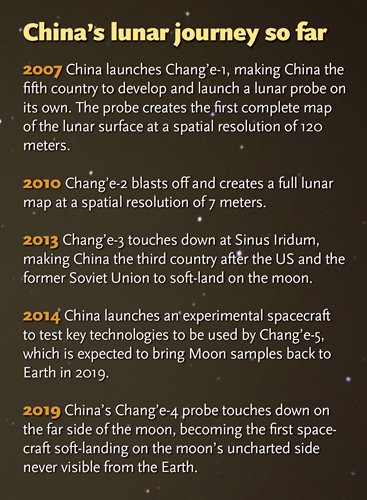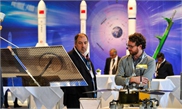We seem to live at the edge of chaos, in which every dawn is broken by tweets that disrupt the status quo. There are no anchors of stability. Trump discarded staff like changing shirts, and reversed policies without any forewarnings to staff or supporters alike.
This behaviour was described by Armenian President Armen Vardani Sarkissian, a quantum physicist turned politician, as quantum politics.
Most of us use the term quantum to mean anything that we cannot understand. The reason why we find quantum concepts weird is that they do not conform with normal logic. As Italian physicist Carlo Rovelli explains it, “Reality is not what it seems”.
Human beings live at the macroscopic scale, which we observe from daily life. We like stability and order. But at the beginning of the 20th century, Albert Einstein and Nils Bohr changed the way physicists thought about how nature behaved. Quantum physics evolved from the study of the behaviour of atoms at the microscopic scale.
Order is only one phase in the process of evolution.
And since the 1980s, quantum science has expanded beyond physics to neuro-science, information computing, cryptography and causal modelling, with great practical success.
Like the iPhone, most people don’t know how it works, but quantum mechanics does work in practice.
The first quantum concept is that it is probablistic, not deterministic. In simple language, there is no such thing as certainty, which classical science, religion and our normal instincts teach us to believe. In the beautiful language of Rovelli, “quantum fields draw space, time, matter and light, exchanging information between one event or another. Reality is a network of granular events, the dynamic which connects them is probabilistic; between one event and another, space, time, matter and energy melt in a cloud of probability.”
Second, Bohr defined a dualistic property of quantum situations called complementarity. Light is both a particle and wave, not either/or. This concept of complementarity leads to the famous Heisenberg’s uncertainty principle, which basically says that the position and velocity of an object cannot both be measured exactly and simultaneously, even in theory. If everything in the world comprises atoms and photons moving constantly, nothing can be measured exactly – the principle of indeterminacy.
The third concept is relational, in that everything is related to something. There are no absolutes, just as there is no certainty. Everything exists relative to something else. Quantum entanglement occurs when pairs or groups of particles interact with each other so that the quantum state of each particle is somehow related to the state of the other(s), even across great distances.
This phenomenon is popularly called the butterfly effect, which dramatically says that a butterfly flapping its wings may cause a typhoon across the Pacific. Einstein called entanglement “Spooky Action at a Distance”, and he tried hard to disprove it. But these effects were empirically verified in the 1970s.
Quantum physics is moving to centre stage because quantum information theory led to the invention of quantum computing. Until recently conventional computers use binary “bits” (one and zero) as the process for calculation of information. But a quantum computer uses quantum bits, called qubits, which can exist in both states simultaneously, and in so doing, it can process information faster and more securely than conventional computers.
This breakthrough means that quantum computing will transform artificial intelligence, deep learning and advance technology at speed, scale and scope that rivals anything we have witnessed in the world of classical computing. The goldmine of quantum computing is going to make fortunes for everyone, but he who controls the infrastructure (or pipes) across which quantum computing will be conducted will be the big winner.
Information Age
In the Information Age, knowledge, technology and knowhow is more valuable than gold. Central bank monetary creation as well as cyber-currencies like bitcoin, are quantum money, because the marginal cost of production of such “money” is near zero.
We are all so dazzled by such marvellous creation that many investors moved into the alchemy of asset price bubbles. It is no coincidence that the South Sea and Tulip bubbles occurred in an era of great “displacement”, when 17th century investors (including Isaac Newton) had no clue how to price massive returns from new companies colonising the South Seas, or the technological rarity of creating a black tulip.
In qubit terms, hard assets and soft/virtual liabilities are quantumly entangled with each other. If you can generate quantum liabilities at near zero cost, you can control and increase real assets to the disadvantage of your competitors. Put crudely, with a quantum computer and deep learning, you might be able to generate a drone-sized nuclear bomb using 3D printing at very low cost.
Or even more bluntly, you can do this under quantum encryption that the incumbent powers do not even know what you are doing.
It is therefore no coincidence, that the Western Deep States moved quickly against Chinese enterprises ZTE and Huawei, because these two have been big developers and users of quantum computing. First, deprive the competitor from access to the key high-tech fast chips that enable quantum computing to perform at speed. Second, disrupt the management and key talent that would enable such quantum capacity to be operationalised. Third, prevent them acquiring market share to an entrenched level, so that you have time to bring your own technology up to speed.
All these suggest that if you think in Thucydides Trap terms (classical arms race to nuclear war), we will all end up in nuclear mutual destruction.
If quantum thinking is a more “natural” way of thinking about our physical world and human behaviour (since our brains appear to neurologically work in quantum terms), then it means that we need to get rid of old classical thinking and mental traps. The real challenges to global prosperity and survival are climate change, social injustice, corruption, crime and disruptive technology, but mostly outdated mindsets. We need to think through these challenges in quantum terms, which means very new and weird ways of thinking round these obstacles.
Discarding old mindsets is never easy. But mankind has always thrived on getting new solutions to old problems, perhaps this time through a quantum frame of mind. On that optimistic note,
Happy New Year to all!
By Andrew Sheng - Think Asian- Tan Sri Andrew Sheng writes on global issues from an Asian perspective.
Related:
 |
| The photo shows electronics for use in a quantum computer in the quantum computing lab. Describing the inner workings of a quantum computer isn’t easy, even for top scholars. — AP |
Related posts
China successfully launched world's first quantum communication satellite 'very exciting' !
5G connectivity promises faster Internet speeds and more efficiency to run complex tasks in the cloud. — 123rf.com https://youtu.b...
















